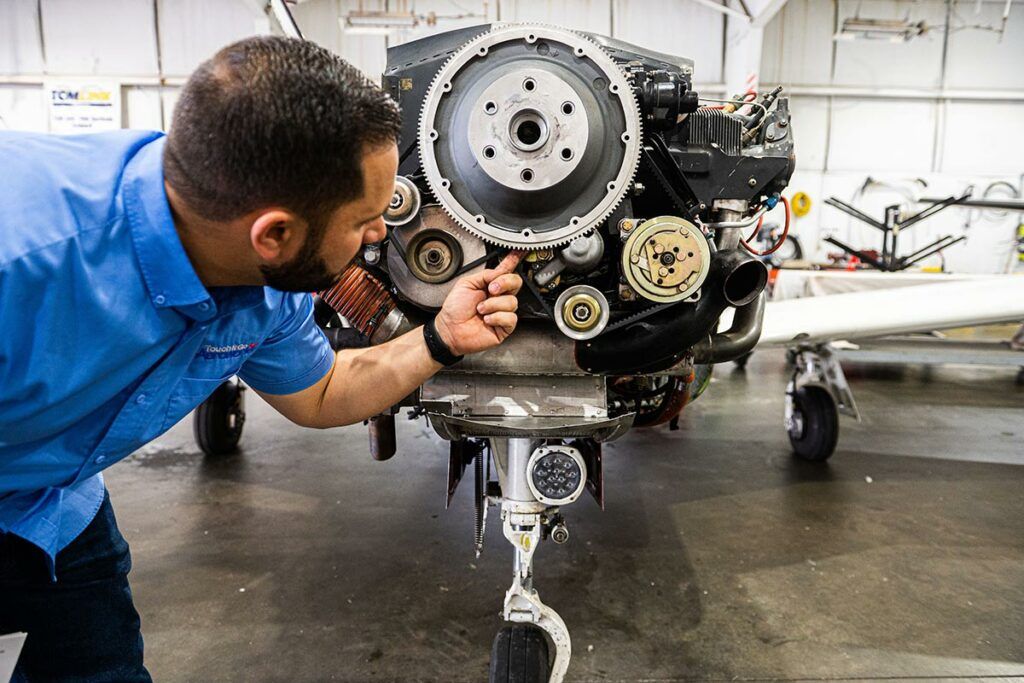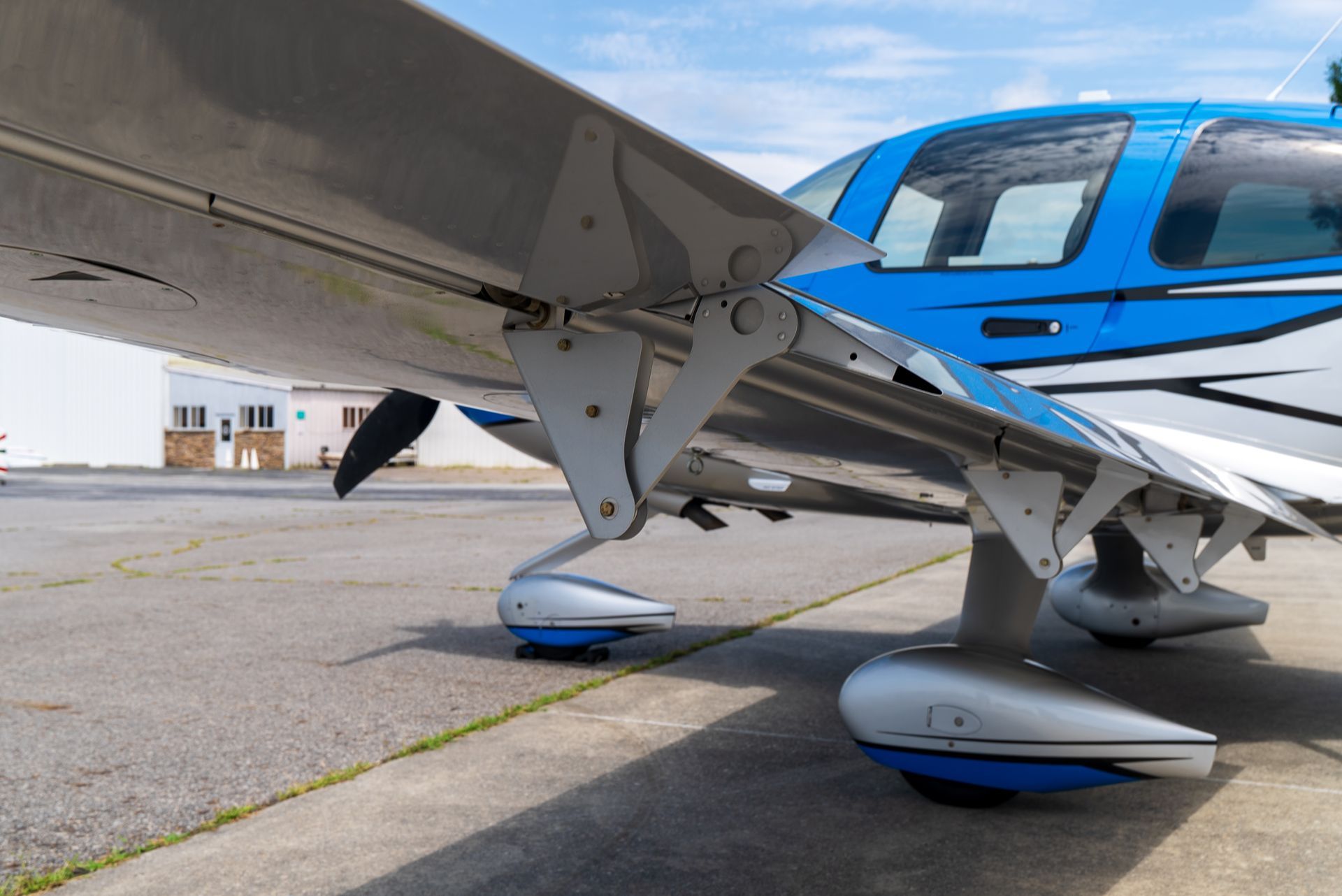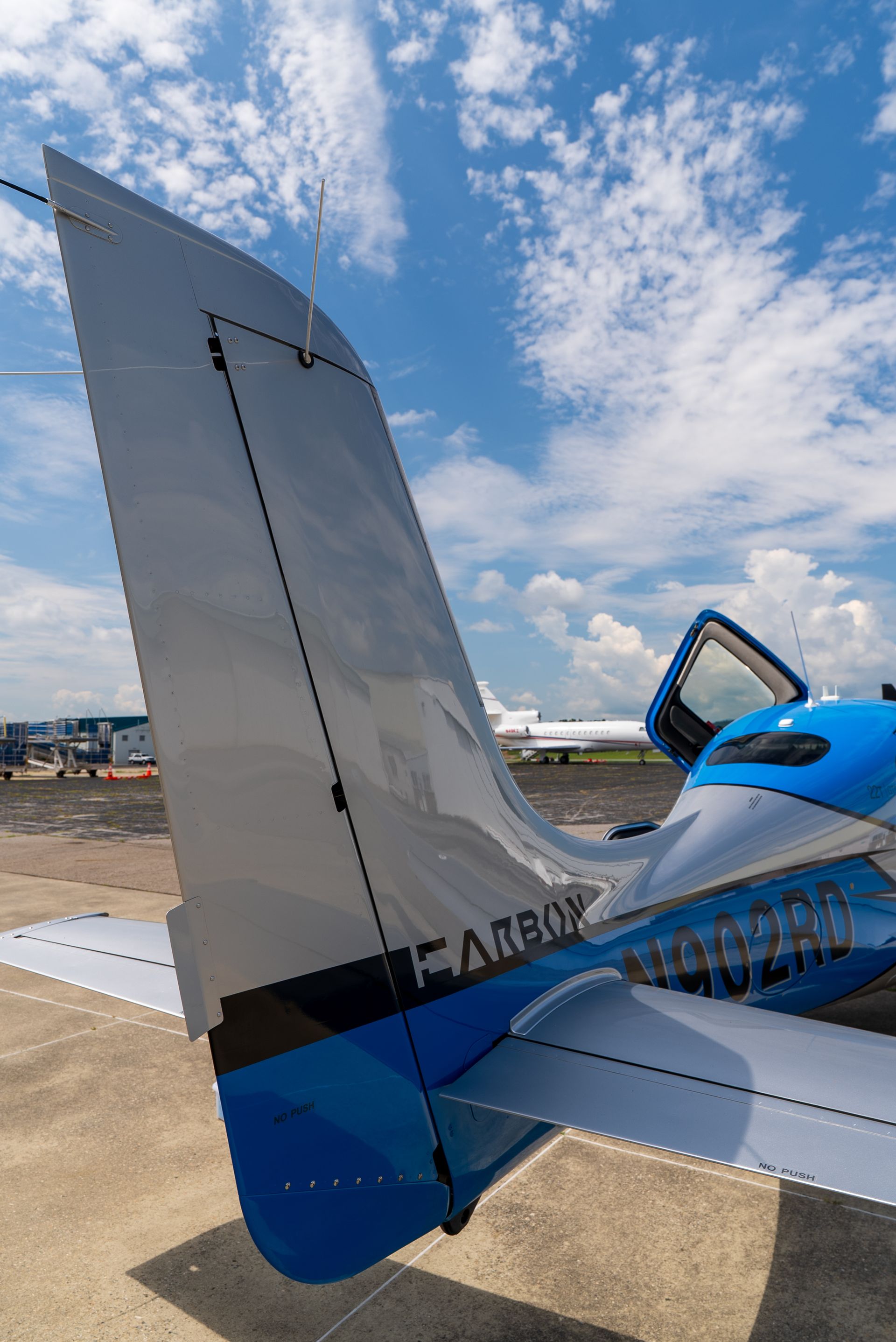Recommended Maintenance
for Your Small Aircraft
Owning a small aircraft isn’t just about the freedom to take off whenever you choose, it’s about trusting your aircraft every time you climb into the cockpit. Whether you’re departing from Clemson, cruising over Greenville, or landing along the Charleston coastline, regular maintenance keeps your plane performing at its best in every condition South Carolina can throw your way. From humid coastal air to hot Upstate summers, a proactive maintenance plan ensures your aircraft stays reliable, efficient, and ready for your next flight adventure.
Why Maintenance Matters
Routine maintenance is more than an FAA requirement, it’s the foundation of safe, dependable flying. When every system is checked and maintained properly, you avoid unexpected delays, costly repairs, and potential safety issues. For pilots who rely on their aircraft for business or recreation, preventive care is what turns a good ownership experience into a great one. Beyond the practical benefits, staying current with inspections and documentation also helps maintain your aircraft’s value over time.
Engine and Fuel System Care
Cirrus and Cessna small-engine aircraft are known for their performance and reliability, but their piston engines require consistent attention. Oil changes should follow manufacturer recommendations, typically every 25 to 50 hours, and oil samples should be reviewed for any sign of contamination or metal content. Checking for leaks, abnormal vibration, or temperature changes can help identify problems early.
Airframe, Exterior, and Landing Gear
In South Carolina’s mixed climate, corrosion prevention should be a top priority. The salt air near the coast and high humidity across the state can take a toll on metal surfaces, control linkages, and landing gear. Regular washing, waxing, and inspection for corrosion or loose fittings can greatly extend the life of your aircraft. Pay special attention to landing gear components, tires, and brake assemblies, as these systems endure the most stress during takeoff and landing. For aircraft stored outdoors, covers and protective coatings offer extra defense against weather and UV damage.
Interior, Avionics, and Electrical Systems
Inside the cockpit, both Cirrus and Cessna aircraft feature advanced avionics systems that demand proper care. Moisture and temperature fluctuations can impact the performance of flight displays, GPS units, and autopilot systems. Keeping the cabin dry, running periodic system checks, and updating avionics databases are essential steps in maintaining peak functionality.
Electrical systems, including main and backup batteries, should be inspected and charged regularly. Corrosion on terminals or loose connections can lead to starting problems and reduced reliability. For Cirrus models with integrated glass cockpits or CAPS (Cirrus Airframe Parachute System) monitoring, ensuring all electrical circuits and software systems are up to date is part of responsible ownership.
Scheduled Inspections and Documentation
Every aircraft owner should keep a close eye on required inspection intervals. The FAA mandates an annual inspection for all general aviation aircraft, including Cirrus and Cessna models, along with 100-hour inspections for planes used in flight training or charter. These regular checks keep your aircraft airworthy and compliant while uncovering wear or developing issues that might not be obvious during pre-flight checks. Detailed maintenance records, including logbook entries, compliance with Airworthiness Directives, and service bulletins, also help preserve resale value and make future maintenance more efficient.
Maintenance Challenges Unique to South Carolina
South Carolina’s climate presents unique challenges for aircraft owners. In the Charleston area, salt and moisture can lead to corrosion, especially for aircraft parked outdoors. In Greenville and Clemson, rapid temperature shifts and seasonal humidity affect tire pressure, seals, and engine performance. Storing your aircraft in a hangar whenever possible helps reduce exposure to these elements, while regular inspections mitigate long-term wear. Even if your plane isn’t flown regularly, short maintenance flights or system run-ups prevent fuel system varnishing, oil pooling, and battery drain.
Fly Further with Confidence
Consistent maintenance is the key to safe and enjoyable flying. Whether you own a Cirrus SR22, a Cessna 172, or another small-engine aircraft, staying ahead of maintenance keeps your airplane performing efficiently and safely in South Carolina’s diverse flying conditions. Partnering with a trusted maintenance provider in Clemson, Greenville, or Charleston ensures that every inspection aligns with FAA standards and manufacturer recommendations.
Treat maintenance not as an expense, but as an investment in the reliability, safety, and freedom that make aircraft ownership so rewarding. When your Cirrus or Cessna is properly cared for, every takeoff becomes an opportunity to enjoy the true freedom of flight.






